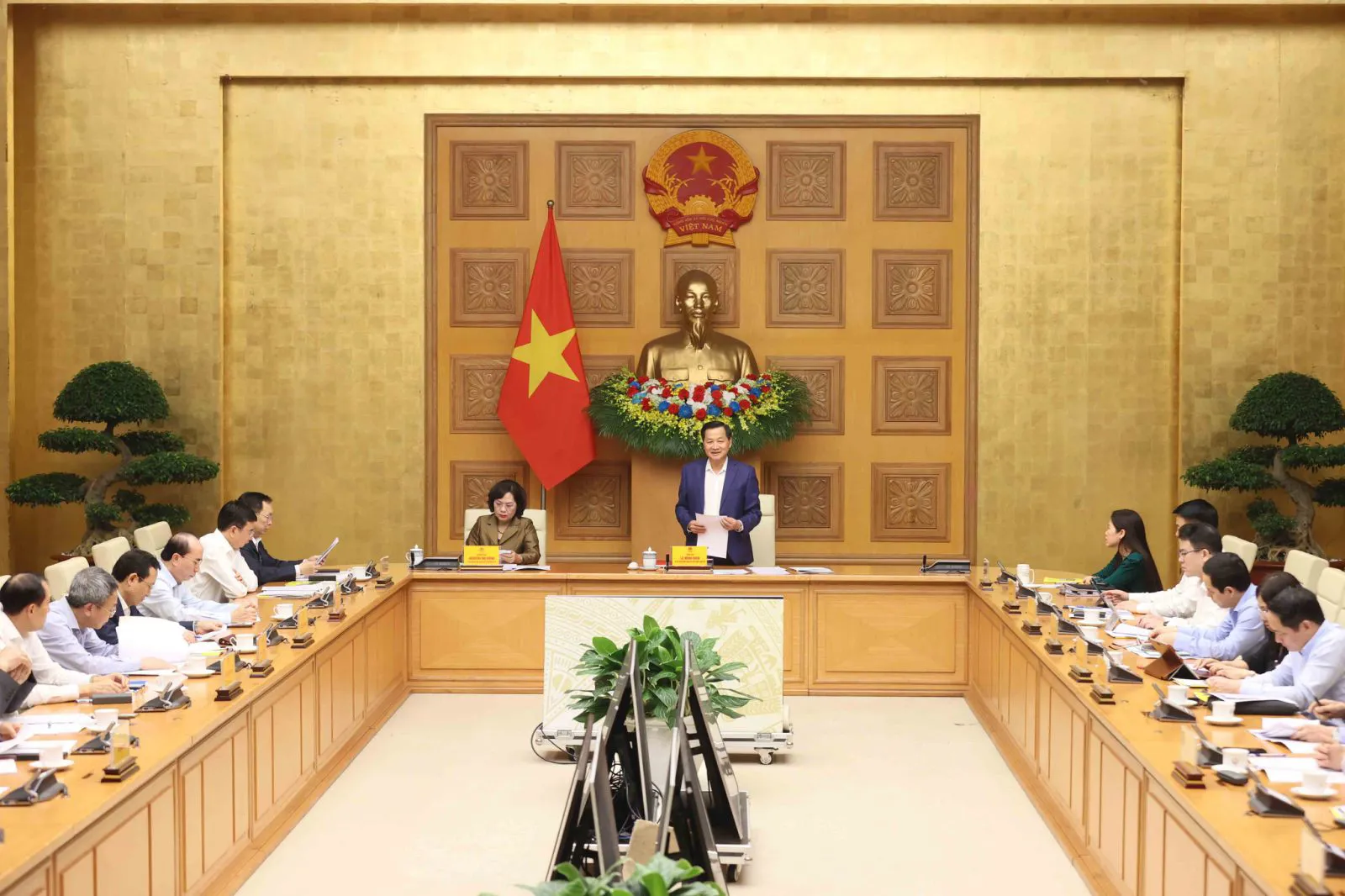Vietnam urged to abolish state monopoly on gold bullion production
Vietnam has so far been successful in achieving the goal of “degoldizing" the economy.
It is time for Vietnam to abolish the state monopoly on gold bar production and to grant production licenses to qualified enterprises.
| Overview of the meeting. Photo: VGP |
The view was shared by experts at the meeting of the Advisory Council on Finance and Monetary Policy held on March 28.
Experts suggest that after 12 years, the Government’s Decree No.24 on gold market management has been successful in achieving the goal of " degoldizing" the economy, prompting calls for the abolition of the state monopoly on gold bullion production.
This proposal was previously made by the State Bank of Vietnam (SBV) at a meeting with the Government on March 20.
Decree 24 was issued in 2012, granting the state a monopoly on gold bullion production to tightly control the supply. However, from 2014 to date, the SBV has not held auctions to sell gold bullion and increase the supply in the market resulting in a significant difference in gold prices between Vietnam and the international market.
Previously, experts had mentioned some mechanisms to intervene in the gold market, such as exporting gold from the national reserve fund, using foreign exchange reserves to import gold, or allowing enterprises to directly import gold from abroad. These mechanisms are aimed at stabilizing gold prices during significant market fluctuations.
At the meeting, Deputy Prime Minister Le Minh Khai instructed the SBV and the Advisory Council to compile solutions and report back to the Prime Minister for feedback. He also requested regulatory agencies to review legal frameworks, and policies, and propose solutions to develop a transparent and healthy gold market.
The price of gold bars on March 28 increased by over half a million dong per tael, reaching over VND81 million ($3,232), while the prices of gold jewelry and ornaments remained stable. Previously, the market experienced continuous fluctuations, with the price gap between the domestic and international markets exceeding VND20 million ($800) by the end of 2023. Currently, this gap is around VND14-15 million ($559-598).
| Locals buy gold at a jewelry shop in Hanoi. Photo: Pham Hung/The Hanoi Times |
SBV Deputy Governor Pham Thanh Ha admitted that gold prices have fluctuated in a complex manner at various times, but the market is relatively stable. This has partly reduced the pressure on the foreign exchange market compared to before. In addition, the mobilization and lending of gold are no longer widespread.
"People's habits and perceptions of gold bullion have changed," he said, adding that some of the people's gold resources have been invested in economic development.
In addition to managing the gold market, the SBV representative also offered insight into its monetary policy management.
Ha added that the average deposit and lending interest rates have declined by about 0.4-0.6% compared to the end of 2023. Additionally, credit rebounded in March, liquidity is abundant, and there is still room for credit growth to supply capital to the economy in the future.
Ha, however, pointed out some challenges, such as unpredictable economic prospects at home and abroad, the resurgence of global commodity prices, latent inflation risks, and high international interest rates and exchange rates. "This poses a significant challenge to balance interest rates and exchange rates, and further cut interest rates to support the economy," Ha said.
On the other hand, non-performing loans are trending upward, and the ability of credit institutions to mobilize medium and long-term capital remains low compared to the long-term investment capital needs of the economy.
To mobilize resources, experts propose that authorities promptly improve the legal framework for green and digital economies and increase labor productivity. Additionally, regulatory agencies should upgrade the stock market without delaying the process due to any incidents.
Deputy Prime Minister Khai tasked the Ministry of Finance with studying solutions to effectively maneuver fiscal policy, including tax and fee solutions. "The Government must ensure macroeconomic stability and major economic balances, control inflation, and support production and business activities of enterprises and people," Khai said.












